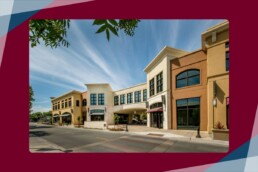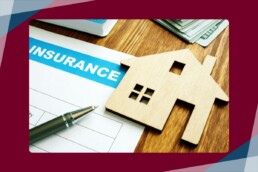Commercial Property Insurance: How to Get the Right Coverage for Your Building
Most small business owners buy insurance with the hope that they’ll never use it. That’s why so many business owners are surprised by how much their commercial property insurance pays off.
If you have already filed a business insurance claim, there’s a 60 percent chance it fell under your commercial property policy. With the prevalence of claims resolved with this kind of business insurance, it’s vital to know that you’re insuring your commercial property the right way.
If you’re on the search for coverage, we’ll explain how to insure your commercial property to keep you and your employees protected.
What Does Basic Commercial Property Insurance Cover?
If you rent or own a building containing a commercial workspace, you will need a commercial property insurance plan.
Commercial property insurance covers buildings you work in, but you can also buy it for places you use for storage and other business-related needs. If you run a home-based business, you will probably need business coverage as well. Your homeowner’s policy won’t cover damage to property you use for your business.
Most small business insurance starts with commercial property and general liability policies. These cover property loss and financial damage. As you add employees, you’ll need to add worker’s compensation and unemployment.
If you own a mortgage on your space, your mortgage lender may need you to protect their investment with a commercial property policy. From a building standpoint, it covers any fixtures, finished additions, and maintenance equipment.
Property coverage pertains to more than the physical structure. Most claims come from the loss of contents within the structure.
Many policies cover the following items if they are inside or within a certain distance of covered premises:
- Furniture, machinery, and business equipment
- Personal property you own
- Inventory
- Hardscape features like fences
Coverage is conditional. It does not insure items that leave your property under a commercial property policy. Instead, you’ll need a separate policy to protect them while they’re off-premises.
What Occurrences Do Standard Policies Cover?
A commercial property policy protects a business from catastrophic losses. Some of the most common covered incidents include damage from:
- Property theft and vandalism
- Fire, lightning, and smoke
- Wind and hail
- Vehicles and aircraft
- Ice and snow weight
- Explosions
- Structural collapse
Insurance will pay for the cost of repairs and replacement to covered building structures and their contents.
Only accidental incidents are covered. Normal wear and tear or breakdown of equipment are not covered under a commercial property plan.
What Insurance Options Do I Need For My Building?
For a small business owner, general liability insurance protects you from lawsuits and other people’s losses. Meanwhile, commercial property coverage pays you for any loss that you suffer.
These plans aren’t as basic as they sound. You must understand the limitations of your commercial property coverage, and what else you might need to cover every potential situation.
Property Off Premises
If your company uses vehicles or transports and uses equipment outside of a covered building, you’ll need extra coverage. There are two forms of additional coverage to consider — inland marine and commercial auto.
Inland marine insurance covers any business property while it is on land and either in transit, being used outside of a covered building, or part of a vehicle. It’s a practical policy for businesses that ship valuable items regularly over land.
A commercial auto policy might be a better place to start if you have company vehicles. A vehicle policy covers cars that your business owns, and you can often get combo policies that cover the equipment inside of the car as well.
Equipment Breakdown
Equipment breakdown coverage covers the accidental malfunction of business equipment. For example, if a printer catches on fire, equipment breakdown can cover repairs, replacements, and even financial losses. A commercial property insurance policy protects equipment from outside harm, and equipment breakdown covers internal causes of damage.
Flood, Earthquakes, and Hurricanes
The many incidents that your policy covers are listed on the causes of loss form, which you can usually find on your declarations page. Depending on your policy, you may have a list of exclusions or a list of included incidents.
Flood, earthquakes, and hurricanes are typical exclusions. You can add these as enhancements to your policy, which is a wise idea if you live in a high-risk area. Keep in mind that the greater the risk, the higher the premium.
Data and Digital Assets
Cyber threats are a growing concern for small business owners as more companies, large and small, are suffering data breaches. Although your commercial property policy covers hardware and equipment from external forces, software and data are not.
A cyber liability or cyber risk policy covers you if your customer’s data is compromised. They help cover the cost of lawsuits resulting from identity theft, defamation, or other damage. Some policies can help with data recovery costs as well.
If you run a business that stores customer information in a CRM, operates online, or takes digital payments, a cyber insurance policy is essential. When paired with a commercial property plan, you have comprehensive coverage from external threats.
What Affects My Rates?
Along with your coverage amount and deductibles, several variables can affect your commercial property insurance rates.
The value of the items being protected is one of the major factors in determining your insurance costs, but the possibility of loss is also tied to it. An expensive piece of equipment in a back office may not be at risk like an expensive piece of jewelry in a retail store. Depending on your industry, you may be at a greater risk of theft.
Location can have an enormous effect on your coverage. If you’re in a tornado zone or a high-crime area, your plan will cost more because a claim is more likely. Similarly, if you live near a police or fire station, you may get better rates because there will be less potential for extensive damage.
The building age, construction, and safety features will affect your rates. Buildings are broken up into six categories of fire resistance, with safer buildings getting you lower rates. You can help yourself further with added security equipment, sprinklers, and other safety measures.
Replacement Value vs. Actual Value
One decision that could swing your rates significantly is choosing between replacement value or actual value to cover losses. Replacement value will cover the cost of replacing equipment with a brand new piece. Actual value will give you reimbursement for the value of the equipment.
Actual value has a lower premium because you’ll likely get less money from depreciated value. If you have an old piece of equipment, you may not get enough money from your insurer to buy a new replacement.
Buy Commercial Property Insurance Based on Needs and Budget
Commercial property insurance covers catastrophic losses. It does not keep policyholders from paying anything. It’s crucial to buy a policy that you can afford, both in premiums and deductibles.
If you’re shopping for new commercial property insurance, contact our team at the Soden Agency. We partner with a wide selection of insurers to provide insurance packages custom fit to suit your business and your budget.
Related Articles
Homeowners Insurance in NJ: A Comprehensive Guide
Key Takeaways Homeowners insurance in NJ protects your home, personal property, and liability, making it essential for safeguarding your investment. Annual…
What You Need to Know About Flood Insurance in NJ
Key Takeaways Flood insurance is essential for New Jersey homeowners, even those outside high-risk zones, as flooding can occur anywhere from various sources…


